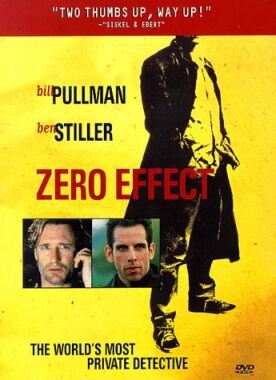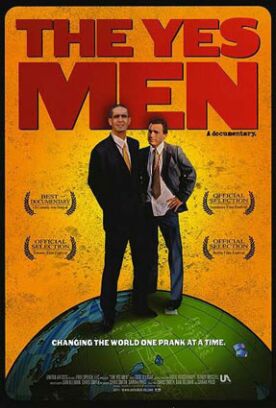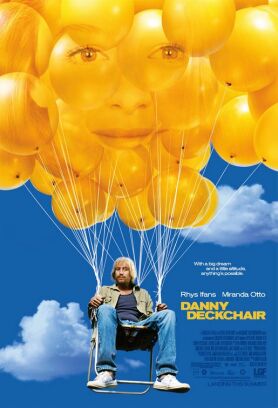Zero Effect
Zero Effect is a wacky detective yarn written and directed by Jake Kasdan and starring Bill Pullman as Daryl Zero, an updated, Americanized version of Sherlock Holmes. Zero is a reclusive private detective who gives his cases names like “The Case of the Mismatched Shoelaces” and commands spectacularly high fees for his “highly intuitive” powers of detection. Also like Sherlock Holmes, he is contemptuous of that which doesn’t interest him (catching a glimpse of a TV documentary about whales, he spouts, “F*** the whales!”), he takes drugs — amphetamines and cocaine — and he fancies himself a poet and musician, though we have the word of his long-suffering Watson, Steve Arlo (Ben Stiller), as well as our own ears, that he is lousy at this.
The plot involves a wealthy businessman from Portland, Oregon, Gregory Stark (Ryan O’Neal), who is being blackmailed. He lost his keys, he says, and on the key ring was the key to a safe deposit box which contained — never mind what. Just find the blackmailer and he, Stark, will take care of the rest. True to form, Zero finds the blackmailer on his first day on the job, but he becomes intrigued by the missing pieces to the puzzle. Moreover, he is beginning a romance with the blackmailer herself, a girl called Gloria Sullivan (Kim Dickens) who is almost his match for cleverness. More cannot be told in this instance without giving away important information that will contribute to your enjoyment of the movie, which is worth going to see.
But there is also, in addition to the pleasure of following the thread of the great detective’s reasoning, the less intellectual, more human pleasures of watching the interaction between him and Arlo, him and Gloria and him and (at a distance) Stark. Arlo keeps trying to spend time with his girlfriend, Jess (Angela Featherstone), but is called up at all hours to do jobs for Zero. Once he has him fly up to Portland from L.A. only to turn around and go back again after speaking to him on the telephone in the Portland airport. Why not speak to him over the phone in L.A? Because he’s paranoid about snoops and bugs. Finally, Arlo promises Jess that he will leave Zero’s employ if she will marry him. Zero takes the news of his leaving very badly, and starts throwing and breaking things. Not at all what we would expect from a man one of whose mottos is: “Passion is the enemy of precision.”
But it is also a test — one of several — of Gloria’s motto, which is that “a person can’t escape their nature.” Well, yes and no. At least for a moment both she and Zero are shaken out of their well-established, middle-aged habits and attitudes, and Zero, stirred by another sort of passion, even makes a mistake for (apparently) the first time and reveals himself to her in his own person. For a time the suspense over whether these two will defy their own natures for the sake of burgeoning love keeps pace with and complements that of the mystery that Zero is trying to solve. I think the film takes the easy way out in resolving this tension, but it was very well-managed while it lasted.
Also, part of the frame of the film depends on Zero’s voiceovers, which purport to be readings from his autobiography in progress. He has to write it himself because his Dr Watson, Arlo, is simply not interested. A nice touch. The style of this book is amusingly portentous. The man is capable of looking with a certain amount of detachment on his own genius. As he says, the secret of his success is “the two obs,” namely objectivity and observation. So he writes about how we all go through life “dropping crumbs” of information, and the good detective has “the ability to read the between the crumbs — not to mix metaphors.” Another of his principles of detection is that: “If you’re looking for something, your chances of finding it are very small. Because, of all the things in the world, you’re only looking for one of them. But if you’re looking for anything at all, your chances of finding it are pretty good, because of all the things in the world you’re likely to find some of them.”
Obviously, this kind of thing is meant to strike us with its cleverness as a joke, rather than its brilliance as a real principle of detection. Zero is only a postmodern Sherlock, just as Arlo is a decidedly postmodern Watson, admiring of the boss’s brains at the same time that he disparages his character to a friend in a bar. Once, when Zero tells Arlo that they are “the good guys” an incredulous Arlo replies with the modern truism: “There are no good guys and bad guys. There isn’t a bunch of innocent guys and a bunch of evil guys. There’s just a bunch of guys.” Everybody knows that nowadays, but there is to my ear a hint of irony about its presentation here, given that even Sherlock Holmes has to learn it. And that helps to make this version of the great detective as interesting in his own way as the original.
Discover more from James Bowman
Subscribe to get the latest posts to your email.







